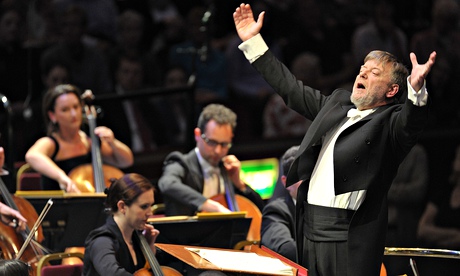
In a Proms lineup stuffed with far-flung orchestras, the Melbourne Symphony Orchestra gets the prize for the furthest. But, though Australia's oldest orchestra was making its festival debut, its recently appointed chief conductor, Sir Andrew Davis, is one of the Proms' most familiar faces. The programme played to both his strengths and the orchestra's.
Strauss's Don Juan brought some springy playing as the introduction and main theme scampered by, but the violin tone broadened to a trademark Davis silkiness whenever there was a chance, linking the swashbuckling to the slower seduction music. The brass could be over-enthusiastic early on, but the horns' ringing entry before the conclusion was spot on.
In Elgar's Cello Concerto, Truls Mørk's big-toned, clean-edged playing made for a muscular performance, always carefully controlled yet bristling with angry passion just beneath the surface. With an Elgar champion of Davis's stature on the podium, Mørk seemed happier than many soloists to let the conductor lead, and the sympathy between orchestra and cellist was strong; but the climax of the slow movement found Mørk pushing impatiently, urging the orchestra to keep up – a rare moment of dislocation that brought a real frisson to a distinctive interpretation. Mørk continued the thoughtful, weighty mood with his encore, the first movement of Britten's Cello Suite No 2.
In Berlioz's Symphonie Fantastique, Davis conducted with a pressing sense of momentum and an ear for vibrant musical colour that made this long, involved musical story seem quickly told. The long buildup to the brass tune in the March to the Scaffold was full of small explosions, and the witches, whose flailing dance forms the core of the finale, were light on their feet. It's a bit of a cliche for an Australian orchestra to play Percy Grainger as an encore, but his Handel on the Strand rollicked by so buoyantly that all could be forgiven.
.

